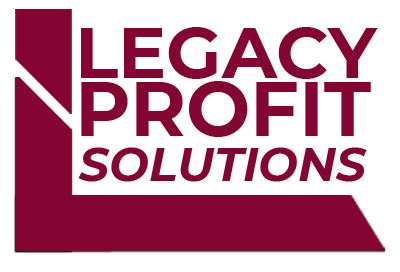Bookkeeping for small businesses involves accurately recording every financial transaction to comply with tax regulations and support informed decision-making. This article explores key bookkeeping practices—from selecting the right method to managing financial records—to help ensure your business’s financial stability.
Key Takeaways
- Accurate bookkeeping is crucial for small business owners to maintain reliable financial records, support sound decision-making, and promote long-term success.
- Choosing the right bookkeeping method and using suitable accounting software can simplify processes and improve financial management.
- Regular financial reviews and seeking professional advice can help prevent common mistakes, ensure regulatory compliance, and support a healthier financial position for your business.
Understanding Small Business Bookkeeping
Bookkeeping is the foundation of effective financial management for small businesses. It involves consistently recording and organizing financial transactions—such as receipts, invoices, and bank statements—to ensure accuracy and transparency. Beyond meeting legal requirements, accurate bookkeeping supports smooth day-to-day operations and offers valuable insights into your business’s cash flow, spending patterns, and growth potential.
Whether using spreadsheets or accounting software, the key is to maintain up-to-date, reliable records that guide smarter decisions and build trust with investors or lenders. The right bookkeeping method depends on factors like your business’s size, transaction volume, and complexity. While manual systems may suit small operations, bookkeeping software typically offers better efficiency, accuracy, and scalability.
At its core, strong bookkeeping isn’t just about tracking numbers—it’s about laying the financial foundation for long-term stability and success.

Why Bookkeeping Matters for Small Businesses
Bookkeeping isn’t just about staying compliant—it’s a vital tool for understanding your business’s financial health and making smart, forward-looking decisions. Accurate financial records give you the clarity needed to budget effectively, forecast revenue and expenses, and pinpoint opportunities for growth or cost savings.
Reliable bookkeeping also plays a key role during tax season, helping you avoid penalties and streamline the filing process. Plus, well-maintained books build trust with lenders and investors, making it easier to secure funding when you need it. In short, strong bookkeeping practices are essential not only for meeting obligations but for building a resilient, profitable, and sustainable business.
Choosing the Right Bookkeeping Method
Selecting the appropriate bookkeeping method is critical in setting up an efficient financial management system. The best choice depends on your business’s size, transaction complexity, and long-term growth plans.
Using the right method ensures access to timely, accurate financial information—essential for making data-driven decisions and maintaining control over your finances.
Single-Entry vs Double-Entry Bookkeeping
Small businesses typically choose between two primary bookkeeping methods: single-entry and double-entry.
- Single-entry bookkeeping records each transaction once. It’s a simpler system, suitable for sole proprietors and businesses with minimal financial activity. This method works well for companies with few or no employees and limited reporting requirements.
- Double-Entry Bookkeeping, on the other hand, records each transaction twice—once as a debit and once as a credit. This method provides a more comprehensive view of your financial position, reduces the likelihood of errors, and adds a layer of verification and accountability. It is ideal for growing businesses with complex financial tracking needs.
Many businesses prefer the double-entry method for its accuracy and depth of financial insight.
Cash-Based vs Accrual Accounting Methods
The two primary accounting methods are cash-based and accrual-based accounting.
- Cash-Based Accounting is a simple method in which income and expenses are recorded only when cash is received or paid. It offers real-time insight into cash flow and is ideal for small businesses with uncomplicated financial activities.
- Accrual Accounting records revenues and expenses when they are earned or incurred, not when cash is exchanged. It provides a more accurate view of a company’s financial position and is crucial for businesses that offer credit, manage inventory, or handle complex financial operations.
When choosing an accounting method, consider your business’s current operations, cash flow needs, and long-term growth plans. Selecting the right approach will support accurate reporting and better financial decision-making.

Essential Bookkeeping Tasks for Small Businesses
A successful small business relies on staying organized, starting with mastering key bookkeeping tasks. These core activities not only help you track and manage cash flow (a critical factor for business survival), but they also enhance your financial literacy, giving you the confidence to make informed decisions and avoid costly mistakes.
By consistently following these essential bookkeeping practices, you’ll gain greater control over your finances and set the stage for sustainable growth. Here are the key tasks every small business owner should prioritize:
1. Recording Financial Transactions
Accurate transaction recording is the foundation of effective bookkeeping. Keep the following points in mind:
- Record every financial transaction, no matter how small, as soon as it occurs to maintain accuracy.
- Avoid delays, as postponing entries can create backlogs and increase the risk of errors.
- Use bookkeeping software or follow a consistent routine to organize records efficiently.
- Include all types of expenses, including internal transfers between business accounts or credit cards. This prevents duplicated income or expenses.
Maintaining detailed records supports accurate financial reporting and enables better business decisions.
2. Managing Accounts Receivable and Payable
Managing accounts receivable and payable is crucial for healthy cash flow and strong relationships with customers and vendors.
Accounts Receivable (AR) represent the money customers owe your business. Timely tracking and follow-up ensure prompt payments and improved cash flow. Use invoice reminders or automated alerts to manage aging receivables.
Accounts Payable (AP) are the amounts your business owes to suppliers. Tracking payables helps you avoid late payments and maintain solid vendor relationships. Timely bill payments also help prevent late fees and safeguard your business’s reputation.
3. Reconciling Bank Statements
Bank reconciliation is essential for maintaining accurate financial records and managing cash flow effectively. It involves comparing your internal accounting records with your bank statements to identify and resolve any discrepancies. Differences between the two may signal missing entries, errors, or even unauthorized transactions. Regularly reconciling your bank statements can catch mistakes early and ensure your financial information remains current.
Utilizing Bookkeeping Software
Using bookkeeping software can dramatically boost the efficiency and accuracy of your financial management. By automating repetitive tasks like data entry and transaction tracking, the software reduces the risk of human error. It frees up valuable time—giving business owners more space to focus on growth, strategy, and customer service.
The right software can transform how you manage your finances, making it easier to stay organized, compliant, and informed. Below, we’ll explore how to choose the best solution for your business and why cloud-based platforms are becoming the go-to choice for modern small businesses.
Selecting the Best Bookkeeping Software
Finding the right bookkeeping software starts with understanding your business’s unique needs. Look for a solution that’s intuitive, scalable, and aligns with the complexity of your financial operations. Features like automated transaction imports, expense tracking, invoicing, and report generation can significantly affect day-to-day efficiency.
If spreadsheets start feeling limiting or time-consuming, it may be a sign that your business has outgrown manual methods. When evaluating software, consider factors like the number of users, integration with other tools you use (e.g., payroll, payment processors), and whether the platform offers industry-specific functionality.
Choosing the right tool isn’t just about convenience—it’s about building a foundation for better decision-making, smoother operations, and long-term financial clarity.
Benefits of Cloud-Based Accounting Software
Cloud-based accounting software offers numerous benefits that make it especially valuable for small businesses:
- Real-time access to financial data enables instant updates and deeper insights into your business’s performance.
- Automation features, such as receipt and invoice data extraction, minimize manual entry and reduce the risk of errors.
- Seamless integration with other business tools (e.g., payment platforms, inventory systems) improves workflow efficiency and ensures accurate reporting.
- Scalability and security—cloud solutions grow with your business and often include robust data protection measures to safeguard sensitive financial information.
Organizing Financial Documents
Effective document organization is a cornerstone of efficient bookkeeping. Keeping your financial records orderly and up to date throughout the year not only simplifies tax preparation but also ensures you can quickly access critical information when needed—whether for audits, funding applications, or strategic planning.
Consistent categorization and regular updates to your records help prevent confusion, reduce errors, and support accurate financial reporting. Maintaining a clear system saves time, reduces stress, and creates a reliable foundation for more innovative financial management.
Keeping Receipts and Invoices
Invoices are formal requests for payment from vendors or service providers, while receipts serve as proof of payment. A receipt scanner or digital storage system allows you to maintain organized electronic records, reducing physical clutter and improving access—especially during tax preparation.
To stay on track:
- Log invoices as open payables
- Record receipts as payment confirmation
Staying organized ensures easy access and streamlines your bookkeeping.

Categorizing Business Expenses
Accurately categorizing expenses is essential for maintaining clear financial records and identifying tax deductions. The Chart of Accounts organizes transactions into key categories like assets, liabilities, equity, revenue, and expenses—providing structure for effective financial tracking.
Common business expenses include office supplies, utilities, and marketing costs. By using tracking tools and consistently categorizing expenses, you’ll gain better insight into spending, improve budgeting, and stay tax-compliant.
Preparing Financial Reports
Financial reports are vital for assessing your business’s performance and making informed decisions. Consistent bookkeeping delivers the data needed to understand cash flow, profitability, and overall financial stability—while also ensuring tax compliance and supporting strategic planning.
The three key reports every small business should generate regularly are:
- Income Statement – Shows revenues, expenses, and profit over a specific period
- Balance Sheet – Provides a snapshot of assets, liabilities, and equity
- Cash Flow Statement – Tracks cash moving in and out of your business
1. Income Statement
The income statement shows your business’s revenues, expenses, and net income over a set period. To keep it accurate, record all transactions—big or small—to avoid distorted results.
A reliable income statement helps you track profitability, control costs, and make informed strategic decisions.
2. Balance Sheet
The balance sheet offers a snapshot of your business’s financial position at a specific moment, detailing:
- Assets – What your business owns, listed by liquidity (cash first)
- Liabilities – What your business owes, such as loans and bills
- Equity – Your business’s net worth, including owner investments and retained earnings
Reviewing your balance sheet helps assess financial health, monitor debt, and guide smart investment and growth decisions.
3. Cash Flow Statement
The cash flow statement tracks how cash moves in and out of your business across three areas:
- Operating activities – Day-to-day business operations
- Investing activities – Asset purchases or sales
- Financing activities – Loans, repayments, or owner contributions
Regularly reviewing cash flow helps maintain liquidity, spot potential shortfalls early, and plan strategically to keep reserves strong.
Maintaining Accurate Financial Records
Accurate financial records are crucial for staying compliant, avoiding penalties, and protecting your business’s financial well-being. Clear, reliable bookkeeping allows you to monitor performance, spot cost-saving opportunities, and make timely, informed decisions.
Strong cash flow management also plays a vital role—helping you align income and expenses to maintain liquidity and ensure smooth day-to-day operations.

Regular Financial Reviews
Regular financial reviews help ensure your records are accurate and free of errors or inefficiencies. Business owners can make smarter, data-driven decisions by consistently analyzing up-to-date reports.
These reviews promote accountability, support strategic planning, and strengthen your ability to confidently handle financial challenges.
Planning for Tax Season
Proactive tax planning is key to avoiding penalties and staying compliant. Accurate, consistent bookkeeping simplifies tax calculations, reduces errors, and ensures that all required documents are ready when it’s time to file.
Let’s explore how to track tax deductions and meet deadlines efficiently.
Tracking Tax Deductions
Accurate bookkeeping helps small businesses claim all eligible deductions and avoid costly errors. By consistently tracking income, expenses, and profits, you can better estimate tax obligations and plan ahead.
Best practices include:
- Keeping detailed records to verify deductions
- Organizing receipts and reviewing categories early in the year
- Consistently categorizing expenses for easier reporting
Proper tracking not only maximizes deductions but also supports smarter long-term financial planning.
Meeting Tax Deadlines
Being organized is critical for a smooth tax filing process. Consider the following strategies:
- Use bookkeeping software to organize records and streamline tax reporting
- Record transactions regularly to maintain up-to-date financial data
- Mark key tax deadlines on a calendar to ensure timely filing and avoid penalties
Timely bookkeeping and preparation can prevent interest charges and support financial compliance throughout the year.
Enhancing Financial Literacy
Financial literacy empowers small business owners to make smarter, more strategic decisions. Understanding the basics of finance and bookkeeping helps you minimize costly mistakes, spot financial trends, and make informed choices that fuel growth.
When you can interpret your financial data confidently, you’re better equipped to uncover opportunities, avoid risks, and plan for long-term success.
Consulting a Professional Bookkeeper
A professional bookkeeper can offer small business owners expert guidance and support in maintaining accurate financial records. Ideally, bookkeeping should be handled by a dedicated bookkeeper or an accounting professional. However, qualified owners or skilled employees may also manage finances effectively.
Outsourcing bookkeeping is especially beneficial for small business owners who lack the time, expertise, or resources to manage their financial responsibilities internally. A professional bookkeeper can improve accuracy, enhance financial management, and allow owners to focus on strategic growth.
Find Your Forever Bookkeeper with Legacy Profit Solutions
At Legacy Profit Solutions, we specialize in connecting small business owners with trusted, long-term financial partners — including experienced bookkeepers who truly understand your needs. Finding the right bookkeeper isn’t just about balancing the books; it’s about building a relationship that brings clarity, confidence, and lasting value to your business. Our team listens carefully to your goals and challenges and then matches you with a vetted professional who aligns with your stage, style, and vision. Whether you’re just getting started or preparing for your next chapter, we’ll help you find your forever bookkeeper — so you can stop worrying about the numbers and focus on building the business you love.
Summary
Sound bookkeeping practices are essential for the success and growth of any small business. By understanding and implementing key aspects of bookkeeping, small business owners can maintain accurate financial records, make informed decisions, and remain compliant with tax regulations. From selecting the right bookkeeping method to using accounting software and organizing financial documents, each step contributes to the overall financial health of the business.
Remember, consistent and accurate bookkeeping isn’t just about fulfilling legal requirements—it’s about gaining the financial insight to confidently guide your business. Embrace these essential tips, and you’ll be well on your way to achieving financial stability and sustainable growth.
Frequently Asked Questions
What is the difference between single-entry and double-entry bookkeeping?
Single-entry records each transaction once, making it simple but limited. Double-entry records each transaction twice—as a debit and a credit—offering greater accuracy and a clearer view of your financial health.
Why is it important to categorize business expenses?
Categorizing expenses helps maximize tax deductions, improves financial tracking, and ensures compliance with tax laws. It also supports smarter, data-driven business decisions.
What are the key financial reports I should prepare regularly?
Regularly prepare the income statement, balance sheet, and cash flow statement. These reports provide insights into your business’s profitability, financial position, and cash flow, helping you make informed decisions.
How can I prepare for tax season effectively?
Keep your records accurate and up to date, track deductible expenses, and organize financial documents year-round. Mark key tax deadlines on your calendar to avoid penalties and ensure timely filing.
How can Legacy Profit Solutions help me find the right bookkeeper?
Legacy Profit Solutions matches you with a vetted, experienced bookkeeper who fits your goals and business needs—so you can focus on growth while gaining clarity and confidence in your finances.





